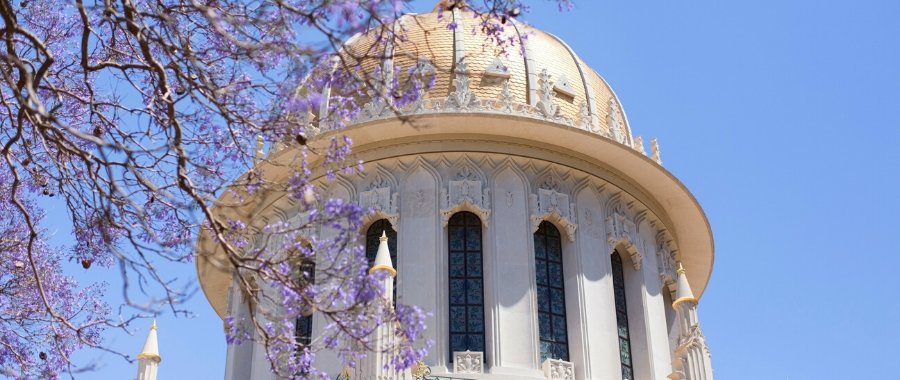The views expressed in our content reflect individual perspectives and do not represent the authoritative views of the Baha'i Faith.
Did you know that certain fundamental ethical and social principles proclaimed by the Baha’i Faith today were first taught by the Bab?
In the same basic way that Christianity repeated and reinforced many of the laws and principles from Judaism – the Ten Commandments being a prime example – several of the Bab’s teachings have served to provide a living legacy within the teachings of the Baha’i Faith today.
But to make explicit that which is implicit requires a close reading of the writings of the Bab. The following explanation will illustrate how this process of deriving universal ethical and social principles can repay a serious reflection on various passages from the works of the Bab.
The Baha’i Calendar
The Baha’i Calendar, originally created by the Bab, contains an implicit action agenda, in which the attributes or names of God refer to divine actions that, in turn, imply ideal ethical individual and social behaviors.
Although first instituted by the Bab in Persian Bayan and later mentioned in the Arabic Bayan, the Badi (“Wondrous” or “Unique” or “New”) Calendar, as it was first known, took its definitive shape when the Bab added further details in one of his last works, the Book of Divine Names. Information derived from this book was transmitted by Baha’i historian and poet, Nabil Zarandi, when Baha’u’llah asked Nabil to set forth details regarding the Badi Calendar for the benefit of Baha’is:
Soon after Baha’u’llah had left the fortress of Akka and was dwelling in the house of Malik, in that city, He commanded me to transcribe the text of the Badi Calendar and to instruct the believers in its details. On the very day in which I received His command, I composed, in verse and prose, an exposition of the main features of that Calendar and presented it to Him. The versified copy, being now unavailable, I am herein transcribing the version in prose. – Nabil Zarandi, “Additional Material Gleaned from Nabil’s Narrative (Vol. II), Regarding the Baha’i Calendar”.
The passage above comes from Volume II of the two-volume history, Volume I of which was translated by Shoghi Effendi and published as The Dawn-Breakers: Nabil’s Narrative of the Early Days of the Baha’i Revelation, by Nabil Zarandi. Volume II of Nabil’s Narrative remains unpublished and, for the most part, untranslated. Baha’u’llah added further details regarding the implementation of the Badi Calendar in the Baha’i book of laws, known as The Most Holy Book.
The Equality of All People
Every human being, the Babi and Baha’i Faiths both assert, is born noble and has the potential to “mirror forth” the attributes of God. The Babi idea that the “Names of God” can also be expressed as human virtues is confirmed by the following:
… the Bab takes human names and attributes, elevates them to the rank of the names of God, and deduces the type of life that is required by the true meaning of those names. The name “the Most Perfect” was mentioned earlier in addressing efficiency and creativity in industry and art. The Bab defines God as the Most Perfect Fashioner, Who has created His handiwork in the most perfect manner by enshrining within all His creatures the sign of His own revelation. Accordingly, those who engage in crafts are asked to realize that inner sign in the world by exerting their utmost effort to execute their craftsmanship in the most perfect and beautiful manner. Reference was also made to another name of God that is discussed in the Book of Divine Names, that is, “the Cultivator.” The Bab describes God as the mighty Cultivator. Farmers, then, are reflections of divine names just as kings are manifestations of the divine name, the King. The Bab makes it evident that He wants everyone to treat all people, regardless of their social position, with the utmost dignity and love, because all are one and the same; all are mirrors of divine names. – Nader Saiedi, The Gate of the Heart, p. 337; citing The Bab’s Book of Names, INBA 29:383–386).
Here, the principle of the equality of all people is proclaimed by the Bab in a creative and profound way, and is one of the principles that can be inferred or derived from a serious study the various laws of the Bab and a reflection on their ethical and social implications today.
Kindness to Animals
Elsewhere in the Bab’s writings, the roots of the Baha’i principle of kindness to animals can be seen in the following passage by the Bab:
Should, at a stopping place, any hardship or pain be inflicted upon an animal, the latter would beseech God to torment its owner. It is always necessary to consider the limits of the capacity of animals, in such wise that after the entrance of its owner into the Bayan, it would not be forced to carry a load unless it is less than the limits of its capacity, otherwise, the profit he may gain thereby would be of no benefit to him. – The Bab, Persian Bayan 6:16, provisional translation by Nader Saiedi, The Gate of the Heart, p. 325.
Note that this passage does not explicitly state, “Be kind to animals.” Yet this law of the Bab clearly implies such a principle.
Since the primary purpose of the Bab was to prepare the way for the advent of Baha’u’llah, the Bab’s laws were expressly revealed for this very purpose as well. Once Baha’u’llah proclaimed his prophetic mission on April 22, 1863, in the Garden of Ridvan in Baghdad – thereby fulfilling the Bab’s prophecies – the Bab’s laws themselves invited reflection. Their purpose was to make the world a better place in preparation for Baha’u’llah.
Once Baha’u’llah appeared on the historical horizon, however, certain of the Bab’s laws – and their ethical and social implications – could still make the world a better place, if adopted, adapted and implemented. Baha’u’llah implemented those principles by selecting some of the Bab’s laws for Baha’is to follow in their own lives, such as the ethical and social principles of the equality of all people and kindness to animals.
Social Action: Caring for Others
To discover the universal ethical and social principles the Bab’s laws clearly imply, let’s close with a third example:
Be lovingly watchful of one another and thus improve your affairs. Should ye find amongst you one who is afflicted with grief, remove his sorrow by any means in your power, and should ye find one stricken with poverty, enrich him to the extent of your ability. If ye find in your midst one who is abased, exalt him to the extent ye can, and if ye find one who is veiled by ignorance, educate him to the degree of your capacity. Should ye find amongst yourselves one who is single, help him to marry, in accordance with the divine law, to the limits of your ability, and should ye find one who is in distress, bring him tranquility by any means in your power …. Gaze upon others with the same eyes with which ye gaze upon your own selves …. If ye find in your midst one who is hungry, send him, in truth and to the extent of your power, food in such a way that his heart will not be saddened, and if ye find one who has no clothes, provide him with clothes in the most dignified manner, to the extent possible for you. Look then not at your selves and your possessions, but rather look at God, Who hath created you and conferred upon you from His kingdom that which is your lot. – The Bab, The Book of Names: INBA 29:423–424, provisional translation by Nader Saiedi in The Gate of the Heart, p. 323.
Here, the Bab expresses the Golden Rule in this beautiful form: “Gaze upon others with the same eyes with which ye gaze upon your own selves.”
The Golden Rule, common to all world religions, suggests service to others who are in need. This law of the Bab, although its purpose was to make the world a better place for the appearance of Baha’u’llah – and subject to Baha’u’llah’s subsequent approval – contains a universal ethic and a call to community service, which is precisely what Baha’is around the world are striving to do today in the process of community-building, in order to make the world a better place, one neighborhood at a time.
This makes the Bab not only the precursor and forerunner of Baha’u’llah himself, but also the harbinger and herald of Baha’u’llah’s revelation, doctrines, laws, ethics and social principles as well.
















Comments
Sign in or create an account
Continue with Googleor